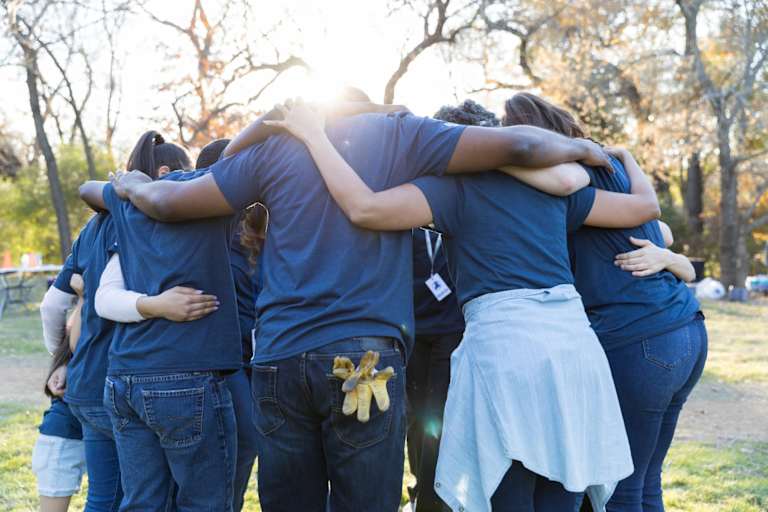Understanding Social Work Field Experience
- Social work field experiences allow students to work in real-world settings supervised by professionals.
- Students can find experiences through various placements, and schools usually offer a matching process.
- Field experiences equip students with many valuable skills, like communication and crisis management.
Every social work student participates in boots-on-the-ground field experiences (sometimes called field placements or field practicums). Not only do colleges and universities require students to take part in these placements, but states require social worker candidates to have some real-world experience as part of the licensing process.
Social work field experiences differ from the college experience, though. Students don’t simply stay in a traditional classroom. They go out to work at various organizations and groups — the types of places they might even find themselves working on a permanent basis in the future.
Since these field experiences are unique to social work programs, they might seem confusing to new or prospective students. This page offers guidance on social work field experiences, including how to find a placement and what students can expect day-to-day.
What Is Social Work Field Experience?
While social work students learn theoretical concepts in their area of study in the classroom, social work field experiences allow them to apply those concepts in real life in a supervised setting.
These placements essentially function as internships where students can practice their skills under the guidance of seasoned professionals. Field experiences can take place in many different settings, like schools, hospice centers, or child welfare agencies.
For a bachelor’s degree in social work (BSW), placements normally occur in the last two years. For a master’s degree in social work (MSW), students typically take on their fieldwork in their last year. However, the specific timing and duration of fieldwork varies based on university requirements. Some students may participate in multiple placements throughout their degree program.
All social work candidates must complete social work field experience as part of their licensure requirements. Specific prerequisites for licensure vary by state, but BSW degrees commonly require at least 400 fieldwork hours. MSW programs commonly include 900 hours of fieldwork.
How Is Social Work Field Experience Arranged?
Most universities arrange social work field experiences or internships for their students. However, in some cases, BSW or MSW candidates may need to find their own placements.
Although every school follows a specific procedure, here are some common steps for arranging fieldwork experiences:
- 1
Placement Application
Students usually fill out a placement application the semester before their social work field experience begins. During this step, students can clarify their specific interests or goals early on.
- 2
Placement Matching
The placement matching process differs at each school, but students often get the opportunity to select their preferred placements. Faculty or field staff review student preferences and applications, and then they match students to their internships.
- 3
Placement Interviews
After students receive their potential match, they typically need to participate in an interview with the agency. Although this may seem intimidating for the interviewee, this step serves as an opportunity for candidates to ask questions about the placement too.
- 4
Placement Confirmation
In the final step, both the student and the fieldwork organization must accept each other.
While traditional on-campus students might go through this process in person, distance learners can often carry out most or all steps virtually. Universities generally strive to match students with placements in some proximity to them — that way, distance learners can complete their experience without the added burden of a painful move or long commute.
Where Do Field Experiences Take Place?
Social work field experiences take place in many settings. Students can often take on a placement within their interest area or field of specialization.
For instance, aspiring social workers who want to work with children can find opportunities in schools or child welfare centers. Those who hope to work in mental health might prefer placements in substance use clinics or mental health organizations.
Other potential placements could include: healthcare facilities, hospice centers, justice centers, or community service organizations.
What to Expect During Social Work Field Placement
Every student’s social work field placement looks different, tailored specifically to their career goals and educational requirements.
That said, BSW and MSW candidates typically do not dedicate full-time hours to their social work internships. An undergraduate student might dedicate 15 hours per week to the field, for instance, while a master’s candidate may spend 21 hours a week at their placement. Students often spend 2-3 days per week at their fieldwork placement.
Sometimes students do not complete all of their required hours within one field placement; they may split their time between two experiences.
During students’ internships, they work closely with a field instructor who meets the state’s requirements to work as a mentor in the field. Field instructors regularly meet with the social workers-in-training, often in one-on-one weekly sessions. This serves as an opportunity for students to ask questions and for supervisors to offer feedback.
Students also work with the people receiving services from these organizations, whether those are children, older adults, or people managing their mental health. This means that social work candidates carry out tasks like shadowing, interviewing, case planning, and report writing.
Is Social Work Field Experience Paid?
Many social work internships are still unpaid. However, a movement has gained some steam among students, academics, and professionals to pay MSW and BSW candidates for their social work field experience.
Because graduate students already possess a bachelor’s degree, they may be more likely to find paid positions through place-of-employment internships. Students may also take advantage of placements with stipends, which organizations or schools pay as a lump sum instead of hourly payments.
As a student, you can always reach out to organizations with social work field experience placements to see whether paid opportunities or stipends are available. Some organizations are willing to negotiate, even if they do not pay students upfront.
Everything Else You Need to Know About Social Work Field Experience
Why is field experience important in social work?
Students can learn a lot in the classroom — but in a field like social work, knowledge without practice can only partially prepare you for your career. Social work field experience allows learners to practice everything they learned in the real world. Students also receive guidance from experienced professionals so they can learn on the job without immediately jumping into a full-time role with total responsibility.
What skills are acquired during a social work internship?
Social worker candidates hone all of the skills they will need post-graduation during their social work internships. Those skills include communication and crisis intervention, especially when working with vulnerable people like children or individuals struggling with addiction. Students practice the administrative skills they need, such as case management. They also learn how to work under pressure and manage their time.
How do I prepare for a social work field placement?
Make sure you do your research about your social work field placement. Learn as much as you can about what to expect, the people with whom you’ll be working, and what your day-to-day responsibilities will be. If you know who your supervisor is, reach out beforehand to ask questions. You can also reach out to people who previously participated in a similar social work field placement to learn more about their experiences.
How do I find a paid social work internship?
If you do your research, you may find some paid social work internships or placements with stipends. You can find these placements by searching online or speaking to placement advisors at your school. You can also reach out to organizations with social work placements directly to ask whether they offer paid positions.
Explore More College Resources

Best Social Work Jobs and Careers of 2024
Considering a career in social work? Read our list of social work jobs featuring average pay and education requirements for each.

by Lyss Welding
Updated September 7, 2023



